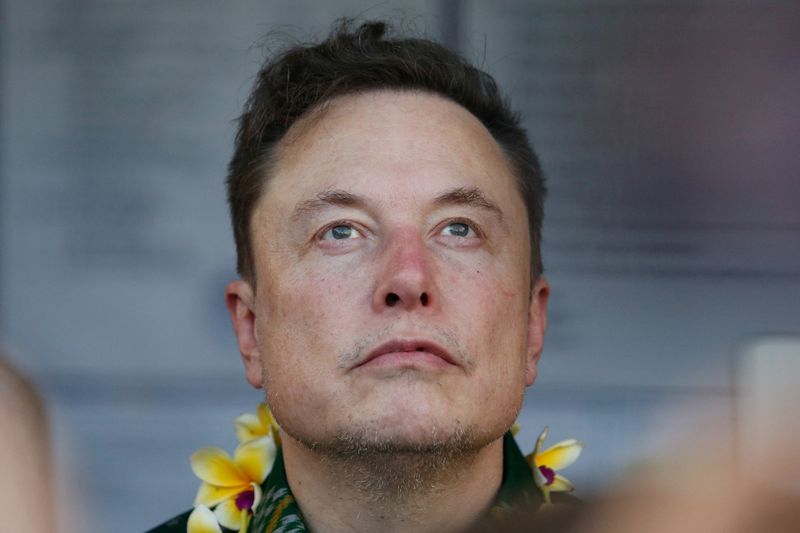Goldman Sachs expects Nvidia ’beat and raise,’ lifts price target to $240
Investing.com — The California Public Employees’ Retirement System (CalPERS), the largest public pension fund in the U.S., said it plans to vote against Tesla Inc (NASDAQ:TSLA) CEO Elon Musk’s proposed $1 trillion compensation package, intensifying scrutiny of one of the most lucrative pay plans in corporate history.
“CalPERS’ longstanding practice when evaluating executive pay is to measure proposed compensation against performance and industry norms,” Drew Hambly, CalPERS’ Global Public Equity Investment Director, told Investing.com. “The CEO pay package proposed by Tesla is larger than pay packages for CEOs in comparable companies by many orders of magnitude. It would also further concentrate power in a single shareholder. CalPERS is voting against.”
The pension fund holds over 5 million Tesla shares, based on its latest disclosure.
Tesla shareholders are set to vote on the compensation plan at the company’s annual meeting on Nov. 6 in Austin, Texas, with the outcome viewed as a test of investor confidence in Musk’s leadership and the company’s governance. The proposal, which could allow Musk to increase his ownership stake to well in excess of 25%, spans ten years and links payouts to both market-capitalization and operational milestones.
The proposed award is structured around both market-capitalization and operational milestones that Tesla must achieve over the next decade. The 12 tranches of the plan begin at a market capitalization of $2 trillion, followed by thresholds at $2.5 trillion, $3 trillion, $3.5 trillion, $4 trillion, $4.5 trillion, $5 trillion, $5.5 trillion, $6 trillion, $6.5 trillion, $7.5 trillion, and $8.5 trillion, respectively.
Operationally, the package ties vesting to a series of long-term goals, including 20 million Tesla vehicles delivered, 10 million active Full Self-Driving (FSD) subscriptions, 1 million Tesla Bots delivered, and 1 million robotaxis in commercial operation. It also sets adjusted EBITDA milestones beginning at $50 billion and rising through $80 billion, $130 billion, $210 billion, $300 billion, and up to $400 billion over consecutive four-quarter periods.
If all performance targets are met, Musk could earn a stock-award tied to the 2025 CEO Performance Award that the company says “could be worth more than $1 trillion.” The award offers hundreds of millions of shares and, if fully earned, could raise his ownership stake to approximately 24-29% of the company.
Proxy advisers Institutional Shareholder Services (ISS) and Glass Lewis & Co. have both recommended that investors reject the plan, citing concerns around its size, dilution of existing shareholders, and board independence.
Tesla’s board chair, Robyn Denholm, has warned that if the pay plan is not approved, the company risks losing Musk’s commitment. The board chair said that opposition to the package could lead to Musk stepping down or becoming less engaged.
"If we fail to foster an environment that motivates Elon to achieve great things through an equitable pay-for-performance plan, we run the risk that he gives up his executive position, and Tesla may lose his time, talent and vision, which have been essential to delivering extraordinary shareholder returns," Denholm said in a letter to Tesla shareholders on October 27.
Critics have also launched a “Take-Back Tesla” campaign, arguing that shareholders, including pension funds and asset managers, should leverage their voting power to hold Musk and the Tesla board accountable for governance, political risk and strategic focus.
The Nov. 6 vote is expected to draw significant investor attention, with approximately 3.3 billion shares outstanding of Tesla and major institutional holders such as The Vanguard Group, BlackRock, Inc. and State Street Corporation among the key players.
CalPERS’ opposition underscores the growing divide between institutional investors and Tesla’s board over how much control Musk should retain, and at what cost. Bloomberg previously reported the fund’s opposition.
